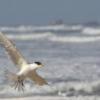-
Posts
9,593 -
Joined
-
Last visited
Content Type
Profiles
Forums
Gallery
Events
Everything posted by Jim Lad
-
She's coming along really nicely. if you can get your hands on some sample strips of veneer, it will save you having to paint your panelling made from paper. John
- 89 replies
-
- scottish maid
- clipper
-
(and 2 more)
Tagged with:
-
Now she's really looking like a yacht, Piet! John
- 102 replies
-

Lower mast tackles, Burton pendants/tackles, top ropes
Jim Lad replied to hamilton's topic in Masting, rigging and sails
Yep, lash 'em up out of the way, Hamilton. John -
Nicely done, Danny. Just how fast does that Rapi-Bond set, and is it chemically stable? John
-

Amanda by Tblack - FINISHED - RESTORATION
Jim Lad replied to TBlack's topic in - Build logs for subjects built 1851 - 1900
Tom, in a word, yes. In a ship with double topsails and/or double topgallants, the lower of the doubled yards would also be fixed. The course lifts are the only running lifts - so that the yard can be trimmed or canted out of the way when necessary when the ship is in dock. The fixed lifts on the hoisting yards are only there to steady the yard when it's in its lowered position. John- 40 replies
-
- restoration
- finished
-
(and 1 more)
Tagged with:
-
You've made very fast progress, mate! She's looking really good. John
- 116 replies
-
- kilkis
- mississippi
-
(and 2 more)
Tagged with:
-
Ed, You mention merchant ships not being built to strict rules like Royal Naval ships, but their builders had to follow the requirements of the major marine insurers if the ships eventual owners were to be able to insure their ships and cargoes. It may be helpful for you to explore the role of classification societies in the U.S. at the time Young America was built. In the British Empire at the time ships were built to Lloyds rules (whose first register had appeared in 1764), but as the American Bureau of Shipping didn't appear until 1862, I'm not sure what rules were followed in the U.S. when Young America was built. Lloyds rules are quite specific as to the required construction methods and I assume that American insurers were equally finicky about how ships that they insured were built. Just a thought. John
- 3,618 replies
-
- young america
- clipper
-
(and 1 more)
Tagged with:
-

Standing rigging color preference and historical musings
Jim Lad replied to Chuck's topic in Masting, rigging and sails
Chuck, In the last photo, the light coloured line looks a perfect match for slightly worn Manilla rope and the dark one looks great for Stockholm tarred standing rigging. Do you makes right hand rope, or only left handed? John -

SS Vinal Haven by TBlack - FINISHED
Jim Lad replied to TBlack's topic in - Build logs for subjects built 1851 - 1900
Tom, That photo from the starboard quarter really shows of the beautiful sheer. John- 326 replies
-
- vinal haven
- steam ship
-
(and 1 more)
Tagged with:
-
Before you know it you'll be onto the hull planking, Augie! John
- 2,191 replies
-
- confederacy
- Model Shipways
-
(and 1 more)
Tagged with:
-
By the look of the rot in that tree it looks like you were lucky to get it down safely before it decided to get itself down! John
- 1,148 replies
-
Pat, Nice to see photos of your model on exhibition in Melbourne! John
- 517 replies
-
- Endeavour
- Artesania Latina
-
(and 1 more)
Tagged with:
About us
Modelshipworld - Advancing Ship Modeling through Research
SSL Secured
Your security is important for us so this Website is SSL-Secured
NRG Mailing Address
Nautical Research Guild
237 South Lincoln Street
Westmont IL, 60559-1917
Model Ship World ® and the MSW logo are Registered Trademarks, and belong to the Nautical Research Guild (United States Patent and Trademark Office: No. 6,929,264 & No. 6,929,274, registered Dec. 20, 2022)
Helpful Links
About the NRG
If you enjoy building ship models that are historically accurate as well as beautiful, then The Nautical Research Guild (NRG) is just right for you.
The Guild is a non-profit educational organization whose mission is to “Advance Ship Modeling Through Research”. We provide support to our members in their efforts to raise the quality of their model ships.
The Nautical Research Guild has published our world-renowned quarterly magazine, The Nautical Research Journal, since 1955. The pages of the Journal are full of articles by accomplished ship modelers who show you how they create those exquisite details on their models, and by maritime historians who show you the correct details to build. The Journal is available in both print and digital editions. Go to the NRG web site (www.thenrg.org) to download a complimentary digital copy of the Journal. The NRG also publishes plan sets, books and compilations of back issues of the Journal and the former Ships in Scale and Model Ship Builder magazines.


